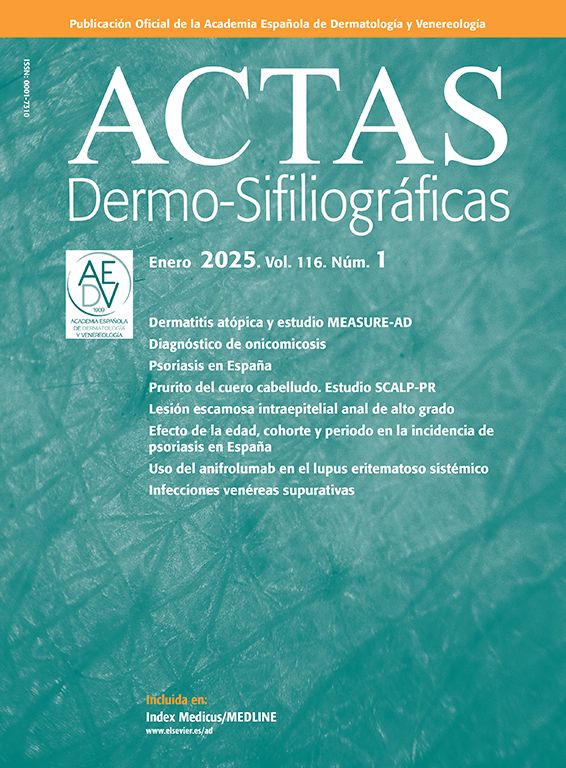The patient was a 40-year-old woman with no past medical history of interest. She consulted for painful breast lesions that had first appeared approximately 10 years earlier. Physical examination revealed multiple indurated plaques and nodules covered by hyperpigmented skin, deep depressed scars with retraction of the left nipple, and fistulous tracts that drained a transparent material. The lesions affected most of the skin of both breasts (Fig. 1A).
Magnetic resonance imaging with contrast showed the presence of numerous lesions in the form of nodular, filiform, and laminar lesions of different sizes, occupying the whole of both breasts and also infiltrating the axillas and the chest wall (Fig. 1B).
Histopathology showed the whole of the dermis to be occupied by vacuoles of a foreign material surrounded by macrophages, inflammatory cells, and fibrosis (Fig. 1C).
Based on these findings, a diagnosis of paraffinomas or oleogranulomatous mastitis was made. On further questioning, the patient stated that she had received injections of free silicone. The differential diagnosis of this condition must include neoplastic diseases, hidradenitis suppurativa of the breast, and tuberculous mastitis. The treatment of choice is extraction of all the affected tissue. Our patient was therefore referred to the plastic surgery department for bilateral mastectomy and reconstruction.
All filler materials are able to induce serious adverse reactions, but in the case of nonabsorbable materials such as paraffin and liquid silicone, these reactions can be permanent.
Please cite this article as: González-Sabín M, Rodríguez-Díaz E, Gonzalvo-Rodríguez P. Destructive Lesions of the Breast. Actas Dermosifiliogr. 2015;106:839.







